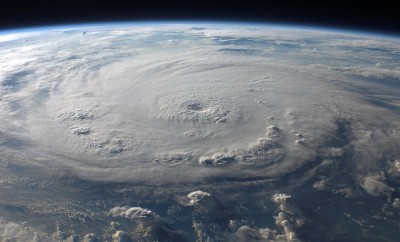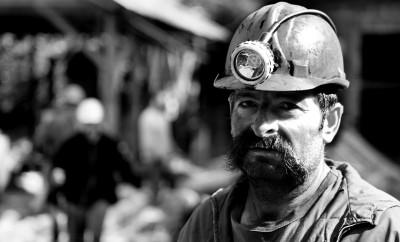Climate hero of the week
Climate hero of the week: The girl fighting for climate justice in Peru

Image: Greengrants
As we continue to see the effects of global climate change, it’s always heartening when we stumble across a story that shows how the general public bands together to help make a difference. Here at OutwardOn we are dedicated to honoring those who create innovative solutions to our world’s biggest climate problems. This week in Climate hero of the week we are introducing Majandra Rodriguez Acha.
At just the age of nineteen, Majandra Rodriguez Acha’s home country of Peru erupted in protests over the Amazonian oil conflict. In 2009, Peru’s president had opened the jungle to the oil development industry, displacing thousands of indigenous people. Acha was livid when she saw footage of the violence on TV and decided to attend a protest of her own.
The police released tear gas on Acha and the other protesters as they shouted “La selva no se vende, la selva se defiende” which means “You don’t sell the jungles, you defend them.”
Since that life changing moment in Acha’s life, she has rallied for the indigenous communities who are in the direct line of fire regarding climate change.
Grist recently caught up with Acha to talk about how she’s sparking a unified movement for climate justice in Peru.
Through her group TierrActiva Perú, Acha and other activists organize conferences, protests, and gatherings that connect young urban activists with indigenous activists in remote communities. The idea is to get people talking, learning, and united for collective action. This year, TierrActiva has rallied against the Trans-Pacific Partnership (TPP), the trade deal that threatens to open up indigenous lands in Peru to natural gas extraction.
Now 26, Acha also is an advisor to Global Greengrants’ Next Generation Climate Board and as a Young Feminist Fellow for Climate Justice at the Women’s Environment and Development Organization.
Acha explains how she is fighting for a unified movement for climate justice in Peru.
She leads by listening
Acha see’s herself as a microphone for years and years of silenced and misunderstood indigenous people. Just before the 2014 Lima climate talks, Acha rounded up more than 100 young indigenous and non-indigenous activists for a nontraditional conference. She lead the conference in a unique style, leaving out lecturers and bringing in big pieces of paper, pencil stencils to make her points and let others make their own, as well in a creative form.
“We started from the premise that we didn’t want to come and make people listen to presentations,” Acha says. “We believe that people are experts of their own reality.”
Weeks later, Acha rented a house that soon became a hub for workshops and art of many kinds, all with a common goal: Justice for climate change. This began a movement called Mobilization for the Rights of Mother Earth, where activists marched for food sovereignty with puppets designed to look like oil rigs and large corn stalks.
She walks the talk
In only TierrActiva Perú’s second year after being founded, Acha decided it was time to focus on regional issues. Rather than rallying for another large conference, she opted for planning a series of decentralized gatherings leading up to the 2015 Paris climate talks. Acha decided to hold these gathering in many rural places such as the Amazon, in the southern Andes, in northern Peru, and by the coast rather than in Lima (the obvious choice for bringing people together). She believed it would give activists a more personable experience of what they are up against. It showed each activist the other issues they may not be familiar with regarding climate change and the problems it is causing in villages other than their own.
“It’s not about charts and numbers,” she says. “It’s about power structures that exploit resources and harm people in the process of doing so.”
Respect the earth, respect the women
Grist explains that the heart of Acha’s work focuses on the connections between environmental degradation and women, something that is particularly true for women in Peru. Women are frequently left out of political discussion and community decisions, even though a majority of Peru’s farmers are, in fact, women.
Populated by the indigenous Aymara and Quechua tribes, Puno, a southern city of Peru, endures hostile winters that have grown more intense with climate change. Puno also suffers a maternal mortality rate 45% higher than the nation’s average, which experts blame in part on the extreme cold, reports Grist.
“It’s poor peasant women and children who are the most affected, and we just send them blankets each year,” Acha says. “It’s clearly not a priority for the government.”
Acha has also been focusing on observing the connections between ecological and sexual violence. She sees great similarities between the language people use to talk about violence against the earth and violence against women.
“A lot of people talk about the rape of Mother Earth and the violent ways in which we extract resources, plunder forests, pollute waterways,” Acha says. “And people think they can get away with it.”
So we here at OutwardOn thank Majandra Rodriguez Acha for making sure that they don’t get away with it. We are honored to name Acha our Climate Hero of the Week.





0 comments